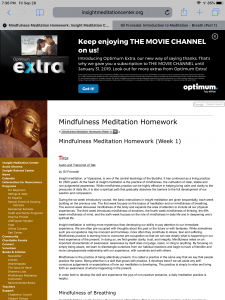I’ve been a Flickr user for quite some time. They’ve had some ups and downs over the years, but I have a whole lot of photos there, so I’ve stuck with them. I was happy when they were bought by SmugMug earlier this year. Not much has happened with that, but it looks like some stuff will be changing soon.
First, they’re finally ditching their tie to Yahoo’s login system. That’s long overdue. I’d really like to nuke my Yahoo account, but I’ve had to keep it a lot longer than I’ve wanted to, since my Flickr account is tied to it. They’re also making some other changes, which all sound good, but honestly, just getting off Yahoo’s login system is my main concern.
I’m pretty hopeful about Flickr’s future. The SmugMug CEO is saying a lot of the right things:
Unlike most photo sharing services, SmugMug is photographer-focused and has been for more than 16 years. We are privately owned and operated. We never raised venture capital to grow our business and we don’t make money selling our customers or their data to advertisers.
And:
At SmugMug, we also charged a fair price when others were pretending “free” was actually free. We work for you, not investors or advertisers. We don’t mine you or your photos for data to re-sell or advertise to you. Your data, and your photos, are yours. You’ve entrusted them to us to keep safe. We take that responsibility very seriously and so does Flickr.
That’s what I’m looking for. I don’t mind paying for Flickr Pro. I just want someplace safe and stable to put my photos.
